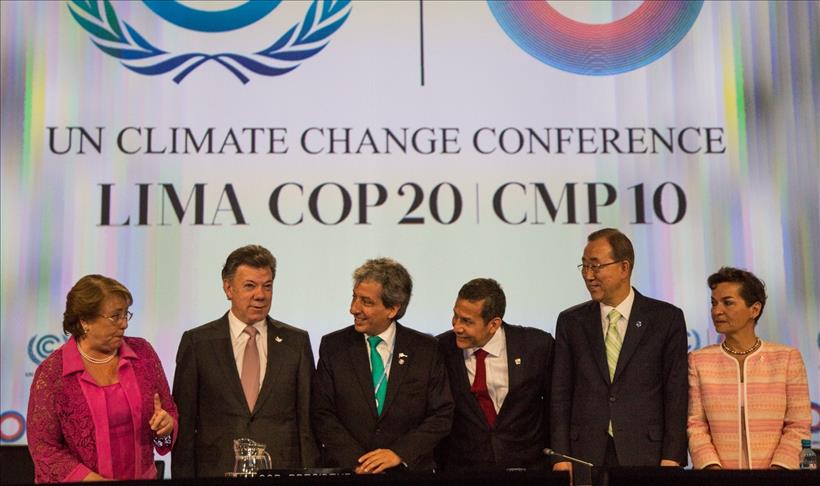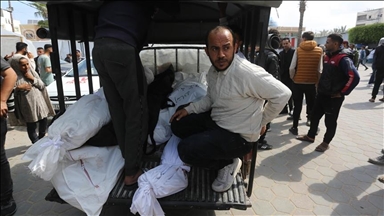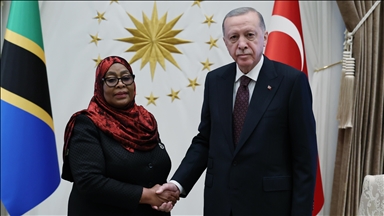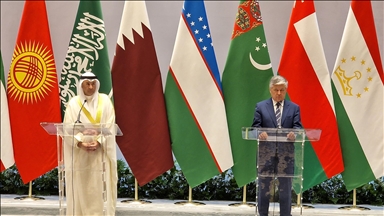West and Central Asian countries devise climate strategy
The Economic Cooperation Organization adopts Istanbul declaration to roadmap strategy ahead of 2015 Paris talks

ISTANBUL
Senior officials from Middle East and Asian countries have adopted a common declaration in Istanbul on Wednesday in an attempt to roadmap their strategy ahead of the 2015 Paris talks, aimed at setting a new global climate change plan.
The Istanbul Declaration was agreed upon by member states of the Economic Cooperation Organization, or ECO, which was established in 1985 by Turkey, Iran and Pakistan.
Speaking to The Anadolu Agency during the fifth Ministerial Meeting on Environment, the vice president of Iran and head of the Department of Environment, Massoumeh Ebtekar said that the declaration would encourage member states to take a stronger approach on climate issue.
“They will work together for a joint action to be able to exchange information and work together with regards to the Paris negotiations,” Iran’s vice president said.
Ebtekar added that the declaration was an indication of a joint resolve by member states to improve the status of environment in the region and to combat issues like climate change.
Member states of the Economic Cooperation Organization include Afghanistan, Azerbaijan, Iran, Pakistan, Kazakhstan, Kyrgyzstan, Uzbekistan and Tajikistan.
“This is an important declaration in terms of the synergies that we can create between member states to both strategies at the level of states’ national level but also scientifically-based action which we need to protect our environment in different areas including climate change and dust storms, energy and water efficiency,” she said.
Ebtekar added that the declaration also stressed upon the need for a trust fund on the environmental issues.
Speaking at the event, Turkey’s environment and urbanization minister Idris Gulerce said that Turkey had a climate-friendly growth, having reduced its carbon emissions by 6 percent while growing economically 5 percent in the last 10 years.
“I think (climate) has a cross-cutting influence on everything; development, economy, employment, people’s life styles,” said Pakistan’s Climate Change Division’s joint secretary, Iftikhar-ul-Hassan Shah Gilani said.
The U.S announced in November a pledge of as much as $3 billion to help tackle on climate change.
Developed nations have agreed to supply $100 billion annually to the Green Climate Fund beginning in 2020, to aid nations most affected - or most likely to be - by climate change.
Gilani said that it was easier for countries to get the funding at an organizational level, rather than individually.
“We think that (the Economic Cooperation Organization) is a very important platform because the fact that all these countries are represented in one region helps us, not only for the sake of the environment but also for the sake of our own development,” he said.
Gilani pointed out that Pakistan was the third most vulnerable country in the world on climate change, having been hit by numerous floods in the last five or six years and losing $2 to $3 million in the process.
Almost 200 nations agreed in Peru on the foundation for a global climate pact this past Sunday, due to be finalized in Paris in 2015.
For the first time ever, countries will have to put forward “nationally determined” plans to reduce their greenhouse gas emissions with the aim of reigning in rising temperatures.
Anadolu Agency website contains only a portion of the news stories offered to subscribers in the AA News Broadcasting System (HAS), and in summarized form. Please contact us for subscription options.





